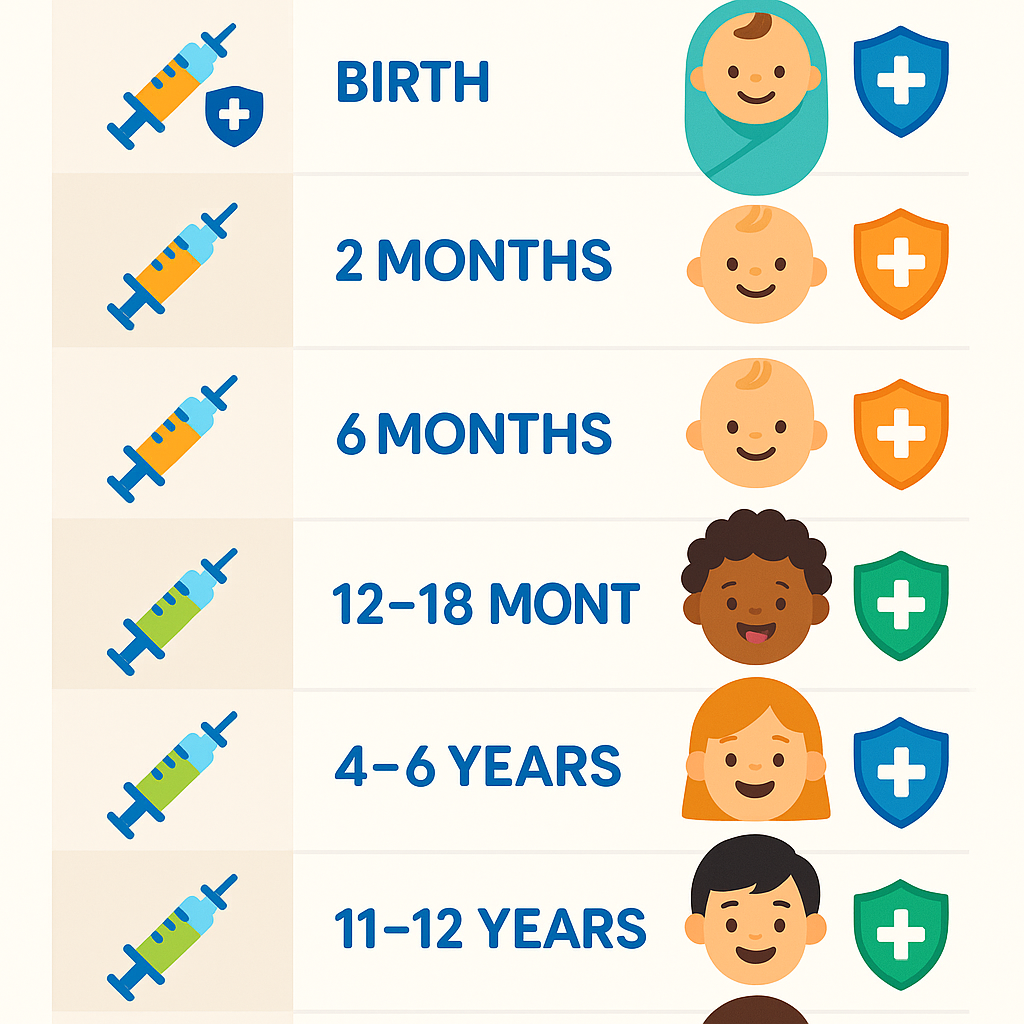As a registered nurse (RN nurse) or nursing student preparing for the NCLEX, knowing the childhood immunization schedule is a must. Vaccinations are one of the most effective ways to protect children against serious diseases, and nurses play a critical role in educating families, administering vaccines safely, and monitoring for side effects.
To make this easier, here’s a simplified immunization cheat sheet to guide you through the timeline from birth to adolescence. This is a perfect resource for your nursing bundle and for anyone studying pediatrics in nursing school.
🌟 Why Immunization Knowledge Matters in Nursing
- NCLEX questions often test immunization schedules and safe administration.
- Nurses must educate parents on vaccine importance and address myths.
- A registered nurse ensures correct timing, proper documentation, and follow-up.
🍼 Birth to 6 Months
- Birth: Hepatitis B (HepB) – 1st dose
- 2 Months: DTaP (diphtheria, tetanus, pertussis), IPV (polio), Hib, PCV (pneumococcal), Rotavirus, HepB (2nd dose)
- 4 Months: DTaP, IPV, Hib, PCV, Rotavirus
- 6 Months: DTaP, Hib, PCV, Rotavirus, HepB (3rd dose), annual influenza begins
💡 Nursing Note: Remind parents about flu shots every year starting at 6 months.
👶 12 to 18 Months
- 12 Months: MMR (measles, mumps, rubella), Varicella, Hib booster, PCV booster, HepA (1st dose)
- 15 Months: DTaP booster
- 18 Months: HepA (2nd dose)
💡 RN Nurse Tip: Always double-check vaccine spacing. Live vaccines like MMR and Varicella require at least 4 weeks between doses if not given together.
🧒 4 to 6 Years
- DTaP booster
- IPV booster
- MMR (2nd dose)
- Varicella (2nd dose)
💡 Nursing Bundle Reminder: These are the “school entry” vaccines – important for NCLEX-style questions.
👩🦱 11 to 12 Years
- Tdap booster (replaces DTaP)
- HPV (2-dose series if started before age 15, otherwise 3 doses)
- Meningococcal (MCV4)
🧑🦰 16 to 18 Years
- Meningococcal (booster dose)
💡 NCLEX Nursing Tip: Remember that adolescents may need catch-up vaccines if they missed earlier doses.
✅ Common NCLEX Nursing Priorities with Vaccines
- Check allergies (egg allergy for influenza, yeast allergy for HepB).
- Verify vaccine storage (e.g., MMR and Varicella need freezing until reconstitution).
- Monitor for reactions (mild fever, soreness normal; report high fever, difficulty breathing, or anaphylaxis).
- Educate families: Vaccines do NOT cause autism – debunking myths is part of safe nursing practice.
📝 Final Thoughts
Mastering the childhood immunization schedule helps both in real-world nursing practice and on the NCLEX exam. As a nurse or registered nurse, you’ll frequently counsel families, administer vaccines, and ensure kids are protected against preventable diseases. Keeping a simplified cheat sheet like this one makes immunization timelines much easier to remember.

